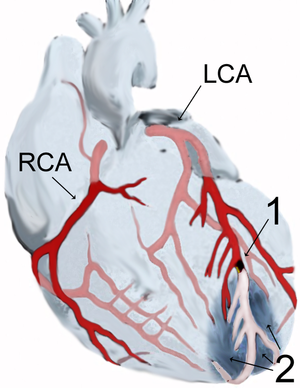[amazon_link asins=’B016YVXJKG’ template=’ProductCarousel’ store=’finmeacur-20′ marketplace=’US’ link_id=’8d649da0-f821-11e7-b272-ad632015392c’][amazon_link asins=’1465464301,B012VDA8GO,B00GQVA728,0062265431,0143127748,1455566381,B00TGPWJ9U,B078NV2G4V,1856753530′ template=’ProductCarousel’ store=’finmeacur-20′ marketplace=’US’ link_id=’afdaf1cf-f821-11e7-9aa1-e7ab7544f1ee’]
Your body is aching all over, and you are suffering from acidity and indigestion. Curiously, medical tests show there is nothing wrong with you. If you are flummoxed, give this idea some thought — is it possible that your suffering is actually a manifestation of stress?
One out of two people in India suffers from stress. Such people are physically, mentally and emotionally unable to cope with the demands that life makes on them.
It is not just men — very often the sole breadwinner of a family — who suffer from stress. It also affects working women who have to balance a career and home and housewives who have to take care of budgets that go haywire because of inflation. It doesn’t spare children either. Stress affects the young who are in an increasingly competitive academic world.
Any physical, chemical or emotional factor that causes mental tension can be defined as stress. It can play an important part in the cause of disease. Continuous stress sets in motion a train of physical events which can eventually precipitate disease. This is particularly so in the case of people medically “sitting on the fence”. These individuals do not as yet have overt diseases such as high blood pressure or diabetes, but months of stress push them over the edge.
Stress invokes a “fight or flight reaction” in the body. It results in a surge of chemicals, predominant among which are the neurotransmitters adrenaline and nor-adrenaline. These act on every organ in the body causing a rapid heart rate, palpitation and a cold, clammy skin. At night, they keep the person awake, tossing and turning in bed. This results in insomnia, one of the commonest early symptoms of stress.
Eventually, other symptoms appear. The person’s temper becomes short and he or she becomes touchy and irritable. Relationships with family members and peers are affected. After all, no one wants to be around a bad tempered person. This disrupts support systems that may actually be beneficial in coping.
Marriages begin to suffer as the libido decreases. There is loss of interest in sex and in children and family activities. Nausea, vomiting and diarrhoea may produce an aversion to food. In some people satiety may be affected, resulting in overeating and food binges.
In such a condition, muscles may go into a spasm and fail to relax. There may be headaches, neck and shoulder pain, and backaches. The skin may break out in rashes.
Unable to relax or sleep, the person may turn to drugs or alcohol to relax. The dependence is not necessarily on hard core drugs such as heroin or cocaine — it may also be on painkillers such as propoxyphene. Many pharmacies may provide anxiolytics (anti anxiety drugs) or addictive sedatives like diazepam or alprazolam without a prescription.
Stress usually builds up over time, although it can be triggered by sudden, unexpected pressure. It is aggravated by long hours of work, lack of job security, long journeys to and from work, and extended periods of exertion with no breaks or holidays.
Short-term stress, however, has certain plus points. It often brings out the best in an individual so that tasks are completed efficiently and on time. By and large, long-term stress is detrimental to physical well-being.
The pressures of work and life cannot be escaped. The stress generated can and should be managed.
Time management is most important. It is best to prioritise tasks and not be sidelined by mundane everyday chores. Do only what needs to be done. Try to finish your work on time. Long hours do not necessarily add up to increased or better production.
Eat meals regularly and on time. Eat healthy, non-greasy food and if necessary get it from home. Add around four to five helpings of fresh fruit and vegetables. The vitamins and antioxidants will give your body a natural boost so that you can avoid all the extra cups of coffee and tea. Excessive caffeine does not really help to keep you alert or active. It might produce more palpitations and tremors.
Exercise is a great stress buster. Around 30-45 minutes of walking, running, jogging or swimming releases natural mood elevating chemicals from the calf muscles. You will not only have more stamina, but will also be rejuvenated. Exercise should be completed an hour before bedtime. Otherwise the chemicals released will keep you awake. The best results are obtained if the exercise is combined with relaxation techniques. Yoga for about 20 minutes a day is ideal. Otherwise deep breathing with the eyes shut and the mind emptied of all thought for five to 10 minutes may be sufficient. Constant stress may make you a high achiever, but unless balanced with diet and exercise, it might push you towards an early heart attack. Such a situation is not worth it and to a large extent avoidable.
Source: The Telegraph (Kolkata, India)



![Reblog this post [with Zemanta]](https://i0.wp.com/img.zemanta.com/reblog_e.png?w=580)


















